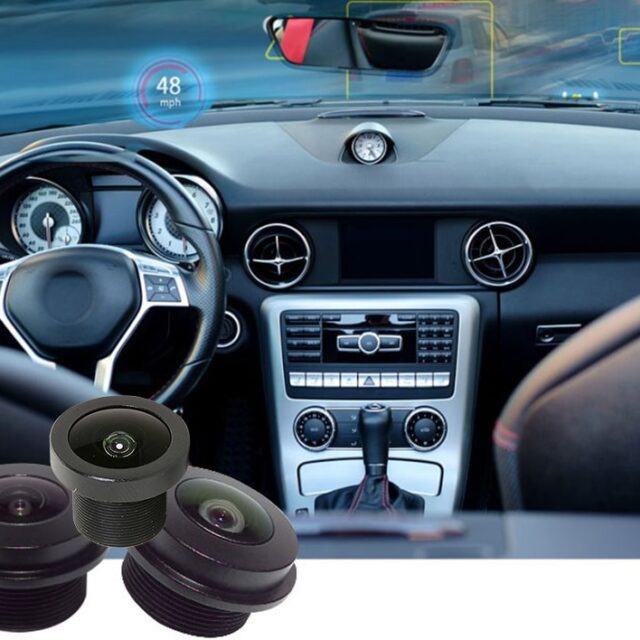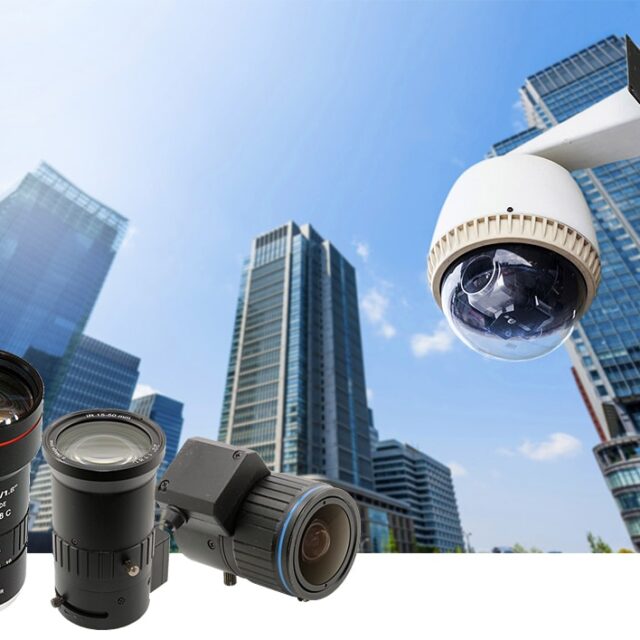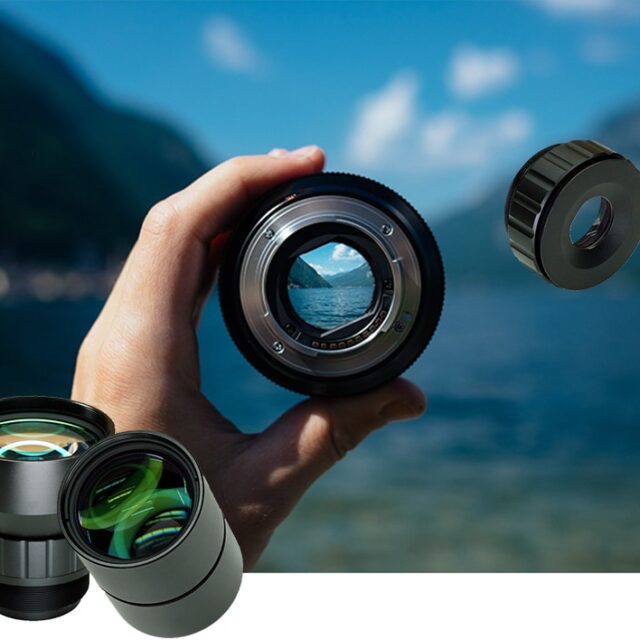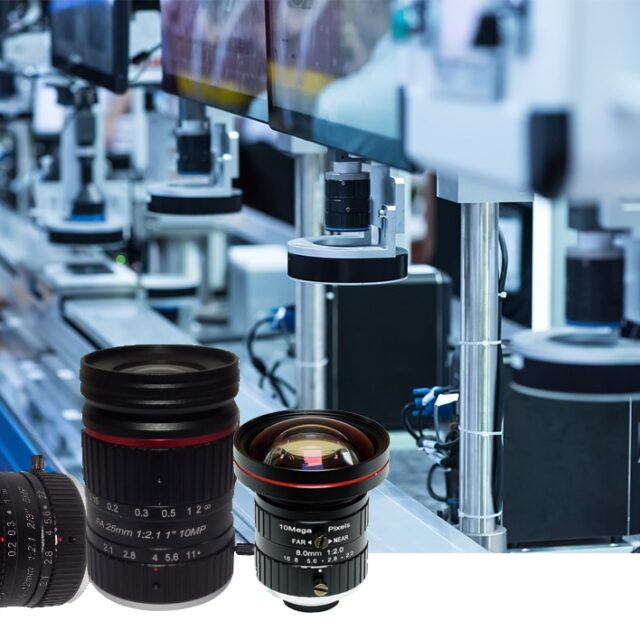Why is Superior Optics the Best Industrial Cameras Lens Manufacturer in the Market?
These Industrial Cameras Lens supplied by SUPERIOR are widely used for industrial automation image processing (FA), machine vision (MV), and CCTV in various industries, such as Factory Automation/ Machine Vision and Traffic Monitoring (ITS).
Apart from these, our Industrial Cameras Lens are used for CCTV Security, Scanning Recognition, Autonomous Driving, Consumer Imaging, Logistics, Agriculture, Food Industry Pharmaceuticals, etc.
How do Industrial cameras lenses process image
In image processing, these imaging lenses perform tasks such as defect detection, surface inspection, or form and dimension inspection.
In industrial machine vision, industrial cameras and machine vision lenses are used and attached with a C-mount thread.
C-Mount is a standardized thread connection. SUPERIOR offers C-mount lenses for image formats from 2/3″ to 4/3″, which correspond to image circle diameters from 8mm to 20mm.
How are Industrial lenses Useful for Surveillance and Security?
If you want to track and monitor traffic to boost security, the resolution of surveillance cameras is best because CCTV lenses are the ones that boost safety. Our camera produces high resolution images and offers detailed information on suspicious people and activities.
Our CCTV security Industrial Cameras Lens delivers correspondingly high-resolution images. SUPERIOR offers motorized zoom lenses with CS mounts for long distances. Zoom, focus, and iris functions are controlled by three-stepping motors. Additionally, it works with the auto-iris or auto-focus.
Industrial lenses with IR -IR-corrected
This industrial lens has an IR-corrected function for day and night monitoring. Superior Optics uses IR-corrected zoom lenses. They are designed to focus on shifting and work with IR illumination. They work amazingly during the night and day.
Industrial lenses with special imaging
SUPERIOR® offers a huge range of high-quality Industrial Cameras Lens. We manufacture cameras that suit our users’s needs, including many imaging needs.
Many industries use our industrial lenses so that they get the best and unique imaging capabilities. Our cameras are made with standard lenses, such as Telecentric Lens for amazing edge-contrast imaging and SWIR Imaging Lens. It has been optimized with infrared wavelengths so that users can easily capture the images.
We have a huge collection of industrial lens accessories such as mounts or adapters. They are used to offer additional functionality.
Adaptations and Personalized Industrial Cameras Lens
SUPERIOR® Optics offers customized solutions to its users for situations where standard lenses don’t work and meet the customer’s requirements.
Apart from these, Superior also has a great customized camera solution with a great spectrum.
However, if you are looking for a professional and renowned Industrial Cameras Lens manufacturer you can contact Superior Optics and order your requirements today. Our team may revert you soon to meet your requirements.
Drop your email and needs today!
Superior provides free of charge consulting about Industrial Lenses, and Optical Components. In addition we offer a wide range of optical products.
You’re searching products you couldn’t find yet? Ask us!
What we can’t offer you yet, we’ll find for you.
Name the product specs and the target price – usually we can provide the desired product.
Industrial Lenses Categories
Frequently Asked Questions
1. What is an “in-line” video system?
2. What is the difference between Primary Magnification and System Magnification?
3. What are M12 (S-Mount) lenses?
4. If I want to design with your lenses and lens assemblies, how do I get the information that I need?
5. What different types of fixed focal length lenses does Edmund Optics offer?
7. What are fixed focal length lenses?
8. What is the difference between depth of field and depth of focus?
9. How do I know what lens mount is best to use for my imaging or vision system?
10. Which type of colored filter is best for my imaging application?
11. What different types of fixed focal length lenses does Edmund Optics offer?
12. I need a video lens for my camera – but where do I start?
13. How I do select the correct testing target for my electronic imaging system (camera & lens)?



